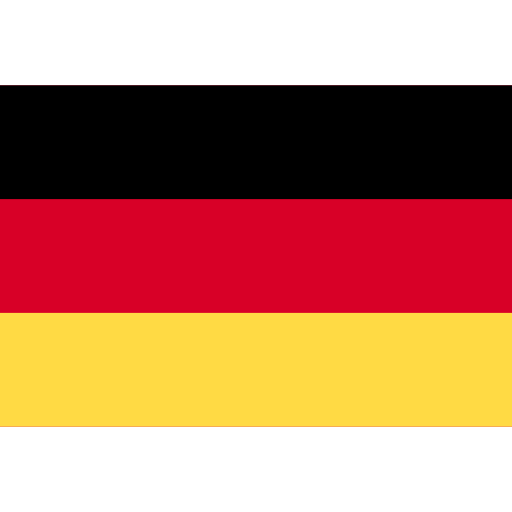Strains mount in European power market as UK generators call for help
[ad_1]
More governments will need to intervene to relieve the strains on Europe’s power market, officials and industry figures have warned, after Sweden and Finland launched emergency backstops for their energy producers and UK electricity generators called on the British government to help.
The Nordic states this weekend both announced emergency financial liquidity measures for their energy generators, which are facing rapidly mounting calls for collateral as a result of extreme volatility in energy prices.
Russia’s announcement on Friday evening that it would no longer supply gas through the Nord Stream 1 pipeline is expected to trigger a sharp rise in energy prices when markets open on Monday morning, adding urgency to the pleas for government support.
Electricity producers in Britain are “really concerned about the situation this winter in relation to [financial] liquidity”, warned Adam Berman, deputy director at Energy UK, a trade body that speaks for around 100 energy companies.
“Fundamentally the energy market is not designed to deal with the scale of market volatility that we have seen over recent months,” Berman said as he urged the UK government to urgently investigate and “understand the scale of the challenge that generators” are facing as wholesale prices remain at historically high levels.
A UK government spokesperson said it was working with regulators to “monitor closely” the functioning of energy markets.
Sweden, which sounded the alarm about the problem on Saturday, said on Sunday that it would provide up to $23bn in credit guarantees to Nordic utilities to help them avoid technical defaults.
“This is a problem that is Europe-wide . . . liquidity is probably an issue in many countries. It may be the case that other countries will have to follow suit,” Max Elger, Sweden’s financial markets minister, told the FT.
Explainer: The European energy market’s big problem

On Sunday Finland warned that the energy sector was facing a potential “Lehman Brothers” moment if governments did not provide emergency funding to help providers meet spiralling collateral requirements caused by soaring wholesale prices.
But on the same day Germany announced a windfall tax on many of the same electricity generators, saying those not reliant on burning gas to create power were enjoying “excessive profits”.
How can companies both be earning huge profits and require government-backed funding at the same time?
The answer lies in the sheer scale of the energy crisis that has engulfed Europe after Russia cut gas supplies following its invasion of Ukraine.
The short-term issue is around trading — and specifically hedging.
Power generators often hedge their sales to households and businesses by taking short positions in future markets prior to selling the physical electricity. In normal times if electricity prices rise the money they lose on their paper positions is offset by their gains in the physical market, and vice versa.
But the sheer scale of the market moves in recent weeks means many of their hedges — often for electricity sold months or years in advance — are deep underwater, requiring them to post more and more cash to exchanges, even if the positions ultimately turn profitable once the electricity is sold.
Companies are struggling to increase their short-term borrowing facilities quickly enough to finance the cash calls.
Jakob Magnussen, chief credit analyst at Danske Bank, said on Saturday that “margin calls are really exploding right now”.
“It’s particularly an issue for smaller utilities,” said Magnussen. “Once the contracts mature and the utilities sell the power they will get their money back, but there’s a huge need for additional short-term funding in the meantime and many banks could be reluctant to increase their exposure so rapidly to the sector.”
Many European energy companies are profiting hugely from the rise in wholesale gas and power prices, but there are large discrepancies across the sector.
Even the strongest companies are starting to struggle with short-term financing tied to the huge volatility in wholesale prices, which requires them to tie up billions of euros in collateral with exchanges — trading which is often essential to managing the flow of energy to households and businesses.
If those markets seize up, or a smaller utility implodes, there are fears of a domino effect across the sector as banks pull back funding — ultimately posing a threat to the stability of energy supplies.
“The amount of cash you need to participate in these markets is getting to impossible levels,” said one European trader on Sunday.
Companies which produce gas or generate electricity using renewables or nuclear — where input costs have not risen — should eventually realise large profits of the kind that Germany plans to tax.
But those reliant on burning gas for electricity generation are more likely to struggle — especially if they were once reliant on Russian supplies. Germany has already provided billions of euros in support to help companies like Uniper — once the biggest German buyer of Russian gas — to keep operating.
David Sheppard
Finland on Sunday proposed a €10bn loan and guarantee package. Sanna Marin, the prime minister, said it was designed to protect companies that were essential for the functioning of society.
“The nervousness in the market is strong,” Finnish economy minister Mika Lintilä told a press conference. “Here were all the ingredients for the energy sector’s version of Lehman Brothers,” he added, referring to the collapse of the US bank during the 2008 global financial crisis.
Germany — which has already provided access to government-backed funding for energy companies — said on Sunday it would impose a windfall tax on electricity generators to help fund a €65bn package of support for households and companies grappling with soaring energy bills.
Some energy traders expect gas and power market prices to breach new records in the coming week.
“We’re expecting a significant jump [in prices] on Monday and for the market to test new highs this coming week,” said James Waddell, head of European gas at the consultancy Energy Aspects.
Sweden’s finance minister Mikael Damberg said authorities were forced to act as the expected rise in electricity prices is likely to lead to a big increase in margin calls on Monday, and “we were worried that utilities in the Nordic region would technically default in their relationship with [clearing house] Nasdaq Clearing”.
Deepa Venkateswaran, European utilities analyst at Bernstein, said financial illiquidity wasn’t “just a Swedish issue” and “in general [there were] rising collateral requirements across the board” in Europe.
Traders said existing short-term credit facilities with banks were in danger of becoming tapped out, while lenders are hesitant to increase their exposure to the energy sector by tens of billions of euros without additional government guarantees or support.
One electricity industry executive warned it would be easy to envisage scenarios where it takes “only a matter of days for not only small but large generators” to topple because of liquidity problems.
EU energy ministers will consider taking bloc-wide steps at an emergency meeting on Friday, according to two officials briefed on the discussions.
The Czech Republic, which holds the rotating EU presidency, has prepared a wide-ranging series of options which will be presented for consideration, including pan-European credit line support, modifying rules around margining or even temporary suspensions of European power derivatives markets.
The preparatory document, seen by the Financial Times, also suggests temporarily splitting electricity production from gas for price setting and co-ordinated cuts to electricity consumption, among other measures. So far, officials in Brussels have not been convinced of the need for price caps and demand cuts at a bloc-wide level and say there is less appetite for EU-wide support for electricity markets.
One European official said some countries opposed EU action because it could encourage energy companies to make speculative bets on future prices.
Supporting energy companies by lowering the amount of collateral they had to post with their banks was a “bad idea” because it would “move the credit risk from the energy industry to the financial industry”, the official added.
Marin called on the EU to act. “With this solution, we treat the symptoms, but we have to see this in this crisis, it is the system that is a problem,” she said.
Alexander Novak, Russia’s top energy official, said the EU was at fault for the dramatic cuts in gas supplies and warned that prices could continue to rise if the EU did not roll back sanctions. Russia claims western sanctions have made it more difficult to repair turbines that help pump gas.
“The whole problem is all at their end,” Novak said. “This nearsighted policy is leading to the collapse we see on European energy markets. This is not even the end, because we are still in the warm part of the year. Winter is coming, and many things are hard to predict.”
Additional reporting by Max Seddon in Riga, Alice Hancock in Brussels and Laura Noonan in London
[ad_2]
Read Nore:Strains mount in European power market as UK generators call for help

 Canada
Canada Japan
Japan Germany
Germany Australia
Australia United States
United States United Kingdom
United Kingdom China
China France
France Ukraine
Ukraine Russia
Russia Turkey
Turkey